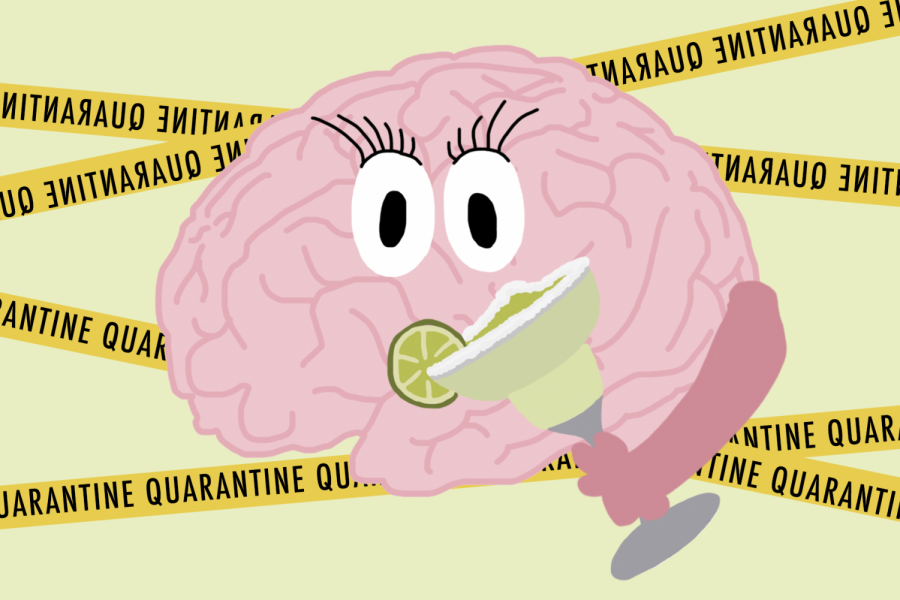OPINION | Pandemic drinking culture indicates poor student health
March 10, 2021
Tulane University is a school known for its party scene, as it is frequently ranked as one of the top party schools in the country. What often goes unrecognized is that frequent partying leads to frequent drinking. “You’re not an alcoholic until you graduate” has become an omnipresent phrase for Tulane’s student body looking to justify the heavy drinking and other substance use of the school’s party culture. While binge drinking numerous nights a week seems normal on campus, in other settings it would be viewed as problematic.
The drinking culture of Tulane seemingly did not decrease due to the coronavirus pandemic. If anything, drinking is one of the sole remnants of Tulane’s social life to survive COVID-19. Across the U.S., binge drinking increased during the pandemic, with people using it to cope with stress and boredom. This trend further intensifies the already present binge-drinking habits of Tulane’s student body.
An absence of parties made the association for Tulane students between being social and being drunk overt. Now more than ever, social settings include liquor regardless of size. It begs the question: why are we still drinking? Is it a habit left over from a bygone era? Or worse, is it a new coping mechanism?
Coupled with the devastating effects COVID-19 imposed on an individual’s mental health, the substance-use atmosphere at Tulane should be examined.
College students have been experiencing depression and anxiety at much higher rates than they were pre-pandemic. This decline in mental health resulted in an increase of reliance on alcohol. A major catalyst for the decline in mental health amongst college students is the lack of social interaction that is required in order to adequately socially distance. For some, drinking replicates the feelings that college students experienced prior to COVID-19, when they could gather in large social settings.
On one hand, students view their four years of college as a time with few repercussions, thus promoting riskier behavior. The pandemic stripped students of some of this already limited time, so they refuse to lose any more. “To me, the continuation of Tulane’s drinking culture is simply a way for us to reclaim the college lives that we left last year and an attempt to make this year feel as normal as possible,” junior Maggie Mckean said.
For students who attended Tulane prior to the COVID-19 restrictions, weekends began on Thursdays, and for some on Wednesdays. This mentality did not disappear among this population, but it is even more apparent how ingrained it is in us. This seems normal, to cling on to the one part of life that has stayed consistent. But if alcohol is the one thing a student can cling to, this is seldom an indication of mental well being.
From an outside perspective, it appears as though students are drinking out of habit. However, the combination of substances and deteriorating mental health can be very harmful. Even this habitual approach to drinking can be a coping mechanism for students grappling with the lack of normalcy in their college experience.
It is understandable that students are looking for an escape. The existential fears that the pandemic forces into public view are insufferable at times and drinking provides an escape. Since heavy substance use was already normalized, it is an easily accessible outlet. This normalization provides no benefit to students. In fact, it makes it harder to recognize their problematic behaviors.
That is not to say there are students at Tulane who have a healthy relationship with alcohol and will continue this balance into their adult life. Rather, there are also students that have developed an unhealthy dependence on alcohol, and these habits will most likely continue past their graduation date. Prior to the pandemic, the drinking culture of Tulane was concerning. With the variable of party culture stripped away by COVID-19 restrictions, Tulane’s drinking culture remains exposed, and must be examined. On the individual level, students should assess if their relationship with alcohol is healthy, especially if they are suffering from poor mental health.























Nick • Mar 11, 2021 at 8:38 am
Such a well written article! Very fascinating some students are drinking more in response to feelings of nostalgia regarding previous semesters.